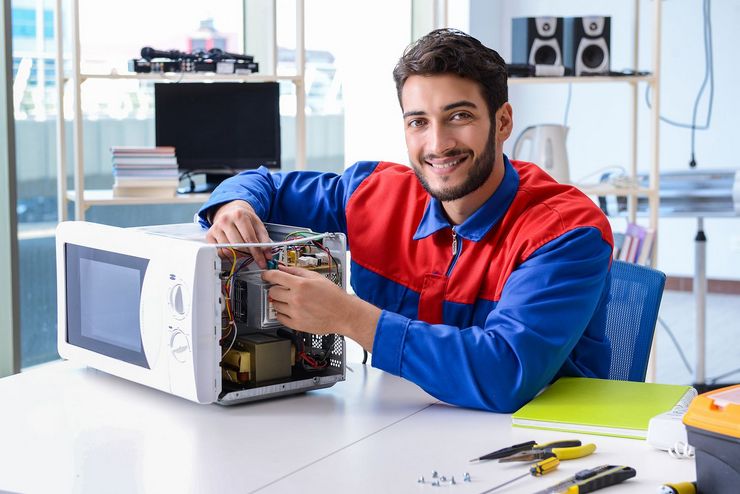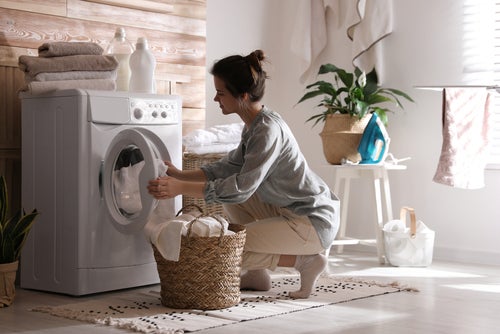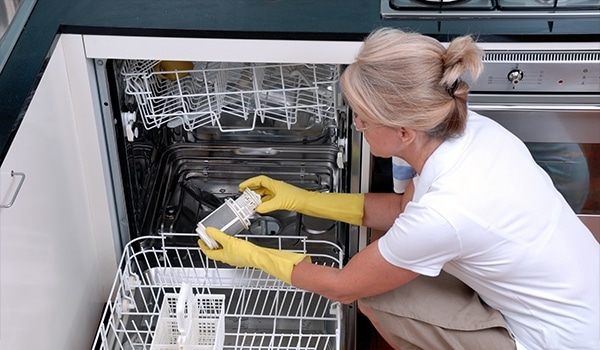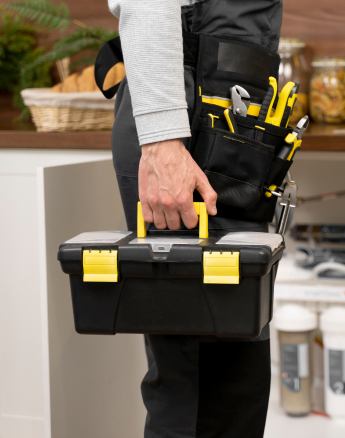Maintaining your appliances is essential for ensuring their longevity and optima...
30 Jul 2024
# 1 Equipment Repairing Service In Houston, TX. Get appointment today

30
Jul
Maintaining your appliances is essential for ensuring their longevity and optimal performance. Knowing when to call in a professional versus handling a repair yourself can save both time and money. This guide will provide you with clear indicators and tips on managing your home appliances, helping you make informed decisions about their care.
Maintaining your microwave not only ensures it operates efficiently but also extends its lifespan. Here are essential tips to keep your microwave in top condition:
Keep it Clean: Regular cleaning is crucial for microwave maintenance. Food splatters can absorb energy, leading to inefficiency and uneven cooking. Wipe down the interior with a damp cloth and mild detergent after each use. For stubborn residues, heat a bowl of water with lemon juice for several minutes on high power before wiping the interior; the steam will loosen any buildup.
Door Seal Check: The seal around the microwave door is vital for safety and efficiency. Check regularly for any food particles or damages that could prevent the door from closing properly. A compromised door seal can lead to energy loss and may pose safety risks.
Turntable Maintenance: Ensure the turntable is functioning correctly. Clean it regularly and check that it rotates smoothly. If your microwave has a removable turntable, wash it in the dishwasher or by hand to remove any food residue.
Avoid Metal and Foil: Using materials that are not microwave-safe, such as metal or aluminum foil, can cause sparks and potentially damage the appliance’s interior.
Monitor for Unusual Noises: Strange sounds can indicate a problem with the microwave’s internal mechanisms. If you notice unusual noises, consider having a professional inspect the appliance.
By following these maintenance tips, you can ensure your microwave works efficiently, remains clean, and continues to be a reliable tool in your kitchen for years to come. Regular upkeep helps prevent common microwave issues and supports optimal performance.
Keeping your microwave clean on a daily basis is essential for maintaining its efficiency and preventing common issues. Here are simple yet effective daily cleaning tips for your microwave:
Wipe After Use: After each use, quickly wipe down the interior with a damp cloth. This prevents food particles from hardening and becoming more difficult to clean later. It also helps avoid odors and the buildup of bacteria.
Use Microwave-Safe Covers: To minimize splatters, cover food with a microwave-safe lid or paper towel. This reduces the amount of cleaning needed and keeps your microwave smelling fresh.
Manage Spills Immediately: If spills occur, address them promptly. Allow the microwave to cool, then clean the spill with a mixture of warm water and mild detergent, or use a solution of one part vinegar to two parts water for a natural cleaning option.
Lemon Freshness: For a deeper clean and to refresh the interior, slice a lemon in half, place it in a microwave-safe bowl filled with water, and microwave on high power for several minutes. The steam will loosen any residue, and the lemon will leave a pleasant scent.
Clean the Door and Seals: Don't forget to wipe the microwave door and the seals with a soft, damp cloth. Removing any food particles and residues from the seals ensures the door closes properly and the microwave operates efficiently.
Following these daily cleaning tips can greatly extend the life of your microwave and prevent common issues such as inefficiency, unpleasant smells, and the potential for smoke or fire caused by accumulated food particles. Regular maintenance keeps your microwave clean, safe, and functional, making it ready for its next use.
Regular maintenance and careful use of your microwave can prevent many common problems that often lead to repairs or replacement. Here are tips to avoid these issues and keep your microwave functioning smoothly:
Never Run Empty: Operating a microwave without any food inside can cause damage to the magnetron, the component that generates the microwave's heat. Always ensure there's at least a glass of water inside when running the microwave, especially if testing its functionality.
Use Appropriate Containers: Always use microwave-safe containers to avoid melting plastics or sparking metals. Containers that aren't microwave-safe can damage the appliance’s interior and create safety hazards.
Avoid Superheated Foods: Foods with high sugar or fat content can sometimes become superheated to the point of starting a fire. Monitor cooking times and use microwave-safe covers to prevent splatters and overheating.
Clean Spills Promptly: Spilled foods can absorb microwaves, leading to uneven cooking and possible damage to the microwave's interior. Clean up spills immediately to maintain efficiency and prevent odors.
Regularly Inspect the Door Seal: The seal around the door is crucial for keeping microwaves contained within the unit. Check it regularly for wear and tear or food buildup, which can prevent the door from closing properly, leading to energy loss and reduced efficiency.
By adhering to these guidelines, you can avoid many of the most common microwave issues. Consistent maintenance and correct usage not only extend the life of your microwave but also ensure it remains safe and efficient in daily use.
Two common problems that often affect microwave ovens are power issues and unusual noises, both of which can signal underlying mechanical or electrical problems. Here’s how to address these concerns:
Power Issues. If your microwave suddenly stops working, first check if the issue is with the power supply. Ensure that the microwave is properly plugged in and that the outlet is functioning by testing it with another device. If the microwave continues to experience power interruptions, inspect the door switch, as a faulty switch can prevent the microwave from operating. These switches can wear out over time and may need replacement by a professional.
Unusual Noises. Strange noises coming from your microwave, such as buzzing, grinding, or clicking sounds, often indicate a problem. A buzzing sound can be related to a malfunctioning magnetron or high voltage diode, both of which are crucial for generating the microwave’s heat. Grinding or clicking may suggest an issue with the turntable’s motor or the roller guide under the plate, which may need cleaning or replacement.
If these troubleshooting steps do not resolve the issues, or if you suspect the problem is related to complex components like the magnetron, it is advisable to contact a professional technician. Attempting to repair major components on your own can be dangerous due to the high voltage parts inside a microwave. Professional help ensures safe and effective repairs, preserving the longevity and performance of your microwave.
Maintaining your microwave doesn’t always require professional help. Many common issues can be addressed with simple DIY fixes. Here are a few tips that can help you resolve minor microwave problems effectively:
Rotating Plate Isn't Turning: A common issue is the microwave's rotating plate not turning. First, check to ensure that the plate is correctly seated on the ring with wheels. Remove the plate and the ring, clean them thoroughly along with the cavity beneath, and replace them properly. Sometimes, debris or misalignment can obstruct the rotation.
Light Bulb Replacement: If the microwave's light bulb has burned out, you can easily replace it. Ensure the microwave is unplugged, locate the bulb compartment, which is usually accessible from the microwave’s interior or side panel. Remove the old bulb and replace it with one of the same size and wattage, suitable for microwave use.
Cleaning Sticky Controls: If the buttons or control panel are sticky or unresponsive, clean them with a soft, damp cloth. Avoid spraying any cleaning solutions directly onto the panel. Instead, apply a small amount of gentle cleaner to your cloth and wipe the area clean.
Deodorizing: To remove odors from your microwave, mix one cup of water with one tablespoon of vinegar and microwave it on high for several minutes until the solution boils and the window steams up. Allow the microwave to cool slightly, then wipe the interior with a cloth. This will help neutralize any persistent smells.
These simple maintenance tips not only keep your microwave in good working order but also extend its lifespan, reducing the need for more costly repairs or replacements down the line.





77095, Houston, TX


 stay tuned we are
stay tuned we are

Just leave a request and we will call you back within 10 minutes and provide professional advice.
Your personal data will only be used to contact you and will not be shared with third parties.